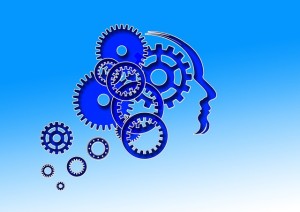When a person perceives his memory or other cognitive function as “not as good as before” but scores within “average range” in objective testing, he may be experiencing Subjective Cognitive Decline (SCD) – the initial sign of Dementia.
The next stage of the disease is normally symptoms of Mild Cognitive Impairment (MCI).
This is when mild signs of cognitive decline start to appear although person is still able to function in his work (employment) and in activities of daily living.
Mild signs of decline could include forgetfulness, decreased efficiency in performing familiar tasks, disorientation as to place and time, changes in mood and behavior.
MCI is usually the stage before conversion to Alzheimer’s Disease (AD).
Dementia is the final stage in the expression of this disorder.
SCD and MCI do not always follow this course. For instance, there have been cases where a person’s SCD progresses to MCI and then goes back to SCD. There are cases where a person goes directly from normal functioning to Dementia.
Source: Symposium speaker Wiesje M. Van Der Flier, UV University Medical Center Amsterdam, The Netherlands





